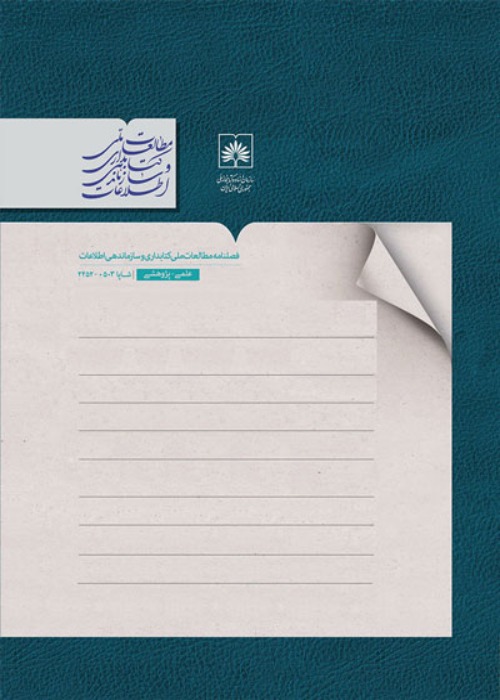Identifying the Components of Research Self-Efficacy in the National Library and Archives of Iran
The present study aimed to identify factors impact on self-efficacy and determine the relationships among such factors; also, to provide solutions and offer suggestions to boost self-efficacy among NLAI research staff.
Grounded Theory method is employed in this study. Research staff members were invited to participate in the study based of their first-hand knowledge, experience or views. Open-ended and semi-structured interviews were carried out until saturation. A total of 26 interviews were conducted. Interview data was analysed in three stages, including open, axial, and selective coding. In open coding stage, meaningful concepts were extracted from the texts of the interviews and formulated as the components of research self-efficacy. In the axial coding stage, the components obtained from the previous stage were analysed and classified into the main categories of the central category, namely contextual conditions, interveners, causal conditions, strategies and consequences. In the selective coding stage, the relationships between main categories and the central category of the theoretical model were developed. Four criteria of credibility (accuracy of descriptions and findings by reviewing the texts of interviews and removing ambiguities from the interviewees), transferability (degree of generalizability of the results to other contexts and environments considering the in-depth description of the results), dependability (through accurate and documented recording of research information and process), and confirmability (avoidance of biases).
A total of 80 factors were identified in relation to the central category of "research self-efficacy". They were classified into 5 categories, namely, contextual conditions, causal conditions, intervening conditions, strategies, and consequences, including 3, 16, 21, 23, and 17 concepts, respectively. Highest frequency belonged to "psychological characteristics", "centrality of research in the organization", "management and planning in the organization", "material and spiritual support", and "organization progress" from contextual conditions, causal conditions, interveners, strategies, and consequences, respectively.
In general, components of research self-efficacy in the organization are related to individual, organizational and extra-organizational factors. Improving and attending to each of these components will lead to the growth and improvement of research self-efficacy in the organization, which ultimately results in the promotion of the research position of the organization. Findings showed that interviewees acknowledged the importance and role of research in promoting the position of the organization as well as the role of faculty members and researchers in strengthening the authority of the organization and found it necessary for the organization to support the research categories, including "research self-efficacy".
- حق عضویت دریافتی صرف حمایت از نشریات عضو و نگهداری، تکمیل و توسعه مگیران میشود.
- پرداخت حق اشتراک و دانلود مقالات اجازه بازنشر آن در سایر رسانههای چاپی و دیجیتال را به کاربر نمیدهد.


